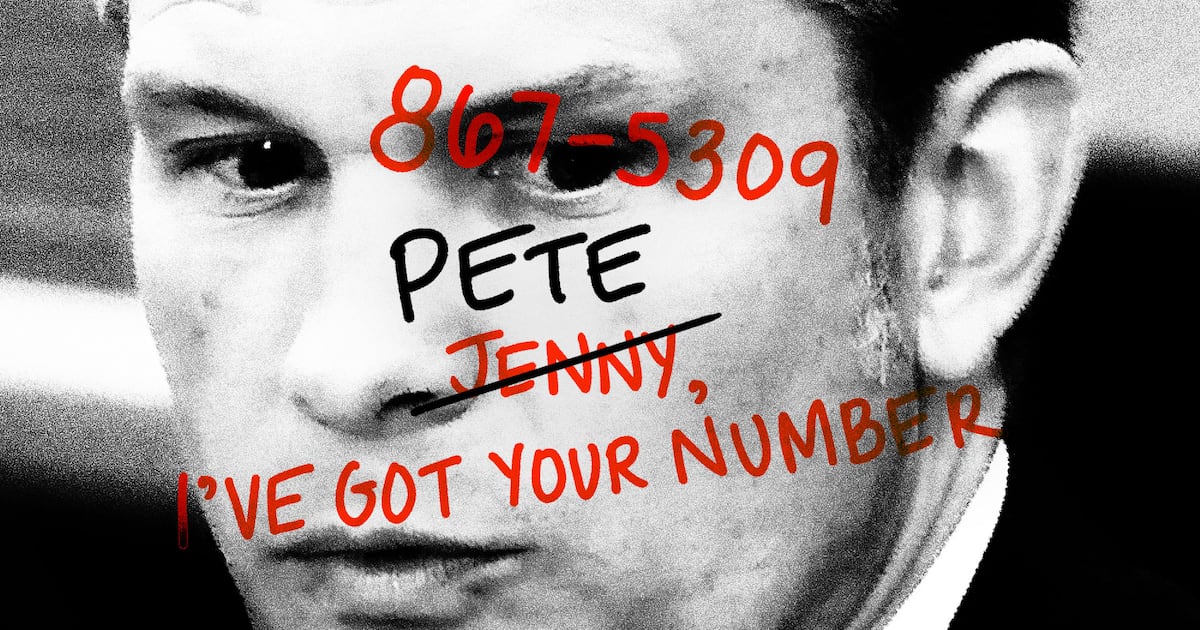I had lunch recently with a good friend who is a veteran of the CIA and one of those spies who is a study in grays—handsome enough, but always in the background; never the first person you’d notice in a crowded room, and very possibly the last. Given his profession, I thought he wanted to be that way. So I was surprised when, early in the conversation as a college student served us iced tea in the diner, he said to me that one of the worst things about getting older is that you become “invisible to women.” It’s not just that they aren’t interested in you, he said, “it’s that they don’t see you.”
Not many men admit this, I think, although I am sure that many men in their 50s and older, and not a few in their 40s, must feel it. And I suspect that it is this sensation of invisibility that makes some men—especially politicians and actors who have made careers trying to be loved in public–make ridiculous spectacles of themselves as they get older.
For Rep. Anthony Weiner , 46, the fear of invisibility would seem to be so profound that he took to tweeting pictures of his depilated chest and distended crotch to complete strangers on Twitter and Facebook. (The congressman may have worried all his life that nobody would see him, and he’s such a geek he’d be pitiful if he weren’t so arrogant. One wonders, is Rick Moranis too old to play him in “Weiner: The Movie”?)
Similar concerns about invisibility, articulated or not, probably lurked in the head of 62-year-old Dominique Strauss-Kahn, who was director of the International Monetary Fund and the leading contender to be the next president of France until he allegedly forced himself on a 32-year-old African immigrant hotel maid in New York City. “Do you know who I am?” he kept asking her, according to several reports. “Do you know who I am?” And by every indication she did not. Strauss-Kahn, now awaiting trial on criminal sexual assault and related charges, has denied any wrongdoing, but he can’t very well deny looking like a fool.
And then there was California’s actor-politician governator, Arnold Schwarzenegger, who was pushing 50 when he fathered a child with his not-so-hot-looking housekeeper in 1997. After news of this broke last month, the tabloids told us Schwarzenegger, now almost 64, preferred women who thought he was more beautiful than they, or that he thought might think so; women, that is, who saw him as he wanted to be seen.
Still, invisible is not a word most men would think of to describe themselves, and in fact it’s not one that society normally applies to the male of the species. We’re supposed to be able to remedy the problem, which is vaguely described as a mid-life crisis (which is nothing more or less than an attention-getting crisis) with chemicals, surgery or, in this day, cosmetics. Even if we don’t buy a Harley and ride off like John Travolta and his friends in Wild Hogs, we squander billions of dollars on pharmaceuticals for erectile dysfunction, often “just in case”; we spend sweaty eons at the gym, or pretend that we do; we plant untold acres of hair in balding scalps (the French call the plugged-in look “a field of leeks”) and we slap on oceans of Grecian Formula or its moral equivalent.
But what’s really missing, and what my friend the spy was talking about, is that great spark that can come from nothing more than eye contact when you’re in your 20s or 30s. Suddenly that’s just not there anymore. You discover that what used to be a young man’s sexy glance is an older guy’s licentious leer. You thought you were a rampant stud, or at least an attractive older man, and you see in the expression of the young woman you’re talking to that you’re really just an old goat. Or you're not there at all. You find yourself saying, “Do you know who I am?”
Without the complicity—the chemistry—that’s there when you’re young, new relationships start to become more and more transactional, based on promises of security and companionship, or just money and ambition. Silvio Berlusconi, the 74-year-old prime minister of Italy, has grown notorious for his womanizing, not least, because his companions, especially the younger ones, are likely to get paid for their presence. Women may think men are too cynical and physical to care, but, yes, many do see a difference between a relationship with a woman who just wants them and one with a woman who wants something from them. The kindest expression of the latter category I can think of is the great closing scene of Gentlemen Prefer Blondes. “Aren’t you funny,” says Lorelei Lee (Marilyn Monroe). “Don’t you know that a man being rich is like a girl being pretty?” But for some men, at least, that’s just not enough.
In truth, invisibility is inevitable. And women have always known that, and felt it, and feared it and discussed. I have rarely spoken about this question with women friends over 40 who didn’t understand immediately what I was talking about. Yet the most beautiful and painful expression of invisibility’s tragedy that I know is actually a poem written in the 1960s by Randall Jarrell, a man who was then approaching his 50s and who was writing about a woman more or less the same age. Her only wish is that “the boy putting groceries in my car/See me. It bewilders me he doesn’t see me.”
All that my friend the spy at the diner wanted was for the girl serving us iced tea to see him. But she did not. Gray on gray, he faded into the background as, indeed, all of us eventually do.





